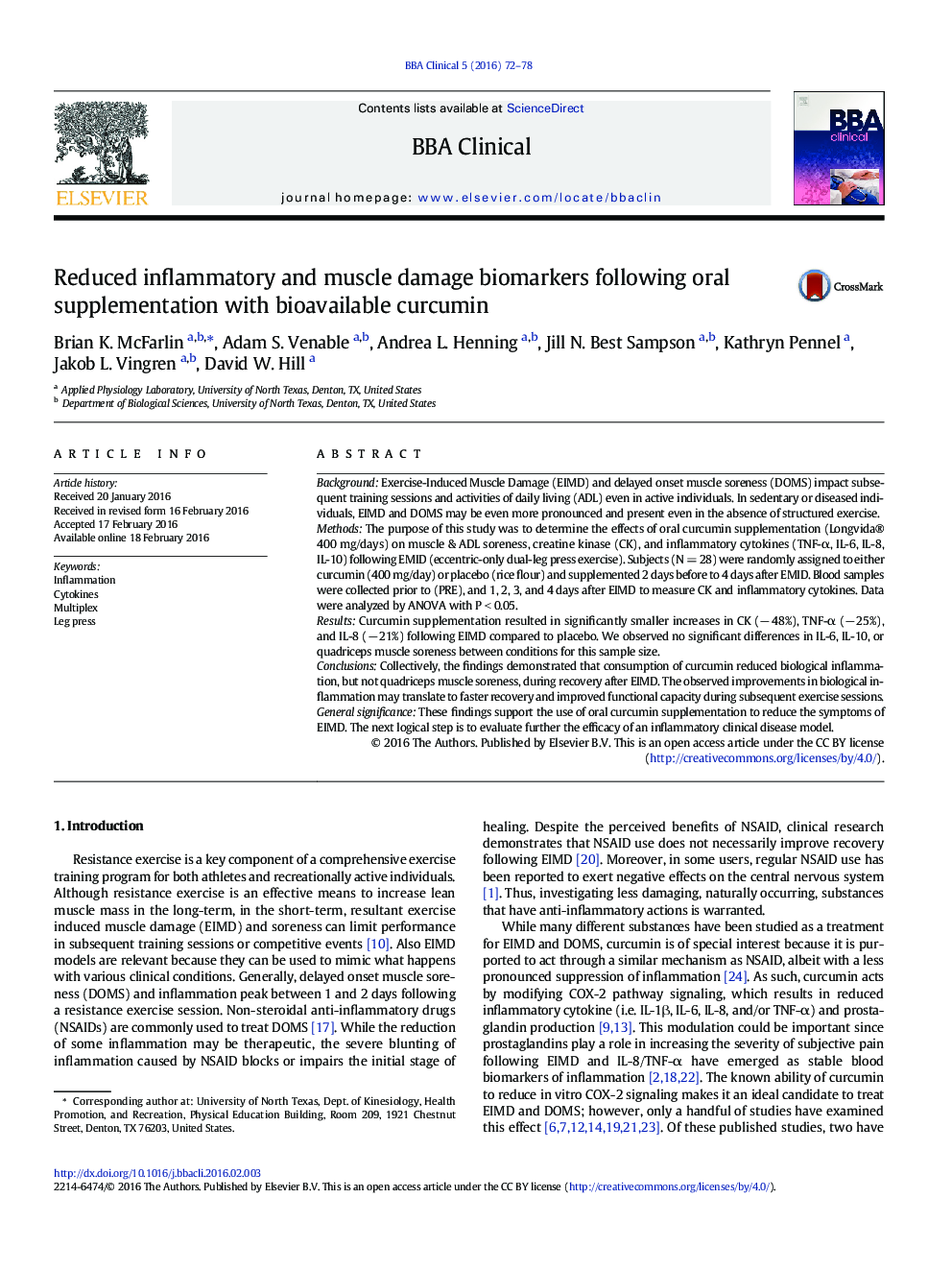| Article ID | Journal | Published Year | Pages | File Type |
|---|---|---|---|---|
| 2773091 | BBA Clinical | 2016 | 7 Pages |
•Oral optimized curcumin supplementation reduced biological indices of muscle inflammation following exercise-induced muscle damage.•Oral optimized curcumin supplementation did not significantly reduced subjective quadriceps muscle soreness for this sample size following exercise induced muscle damage.•These findings support the use of oral, optimized curcumin supplementation to reduce the biological symptoms associated with exercise induced muscle damage.•The next logical step is to evaluated oral, optimized curcumin supplementation in an inflammatory clinical disease model.
BackgroundExercise-Induced Muscle Damage (EIMD) and delayed onset muscle soreness (DOMS) impact subsequent training sessions and activities of daily living (ADL) even in active individuals. In sedentary or diseased individuals, EIMD and DOMS may be even more pronounced and present even in the absence of structured exercise.MethodsThe purpose of this study was to determine the effects of oral curcumin supplementation (Longvida® 400 mg/days) on muscle & ADL soreness, creatine kinase (CK), and inflammatory cytokines (TNF-α, IL-6, IL-8, IL-10) following EMID (eccentric-only dual-leg press exercise). Subjects (N = 28) were randomly assigned to either curcumin (400 mg/day) or placebo (rice flour) and supplemented 2 days before to 4 days after EMID. Blood samples were collected prior to (PRE), and 1, 2, 3, and 4 days after EIMD to measure CK and inflammatory cytokines. Data were analyzed by ANOVA with P < 0.05.ResultsCurcumin supplementation resulted in significantly smaller increases in CK (− 48%), TNF-α (− 25%), and IL-8 (− 21%) following EIMD compared to placebo. We observed no significant differences in IL-6, IL-10, or quadriceps muscle soreness between conditions for this sample size.ConclusionsCollectively, the findings demonstrated that consumption of curcumin reduced biological inflammation, but not quadriceps muscle soreness, during recovery after EIMD. The observed improvements in biological inflammation may translate to faster recovery and improved functional capacity during subsequent exercise sessions.General significanceThese findings support the use of oral curcumin supplementation to reduce the symptoms of EIMD. The next logical step is to evaluate further the efficacy of an inflammatory clinical disease model.
